Faculty

Pieter Desmet
Desmet introduced cognitive emotion theory to the domain of design research, and is board member of the International Design and Emotion Society. Desmet was recently awarded a five-year personal grant for research that aims to understand the nuances of positive emotions in human-product interactions.

Anna Pohlmeyer
Anna Pohlmeyer’s background is in psychology (Humboldt University Berlin). Furthermore, she completed her PhD research in engineering design at TU Berlin and the University of Luxembourg. Her thesis focused on early phases of product development in the design of human-technology interaction. Prior to her doctoral studies, she worked at MIT AgeLab on ideas and technologies that can improve quality of life across the lifespan. As assistant professor at TU Delft, she investigates theoretical and empirical aspects of design-mediated well-being.
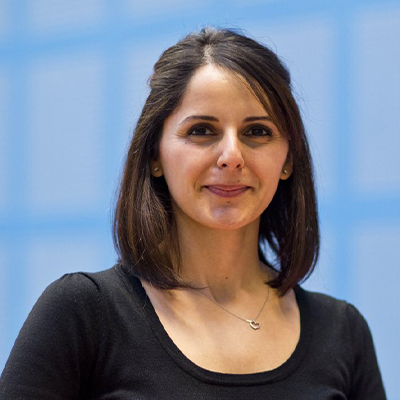
Değer Özkaramanlı
Deger is an assistant professor at Faculty of Industrial Design Engineering, Delft University of Technology. She is fascinated by the richness of dilemmas people experience in daily life. That’s why as a designer and researcher, she has developed dilemma-driven design, which she still pursues in her work. Her aim is to advance knowledge and methods that can address the ethical and political questions that arise in design processes through a focus on design dilemmas. Deger’s work spans the full spectrum of design knowledge from theory to practice as she firmly believes that these two aspects can inform and inspire each other. She often works with qualitative and participatory research methods and adopts a phenomenological and critical stance in studying design practices.
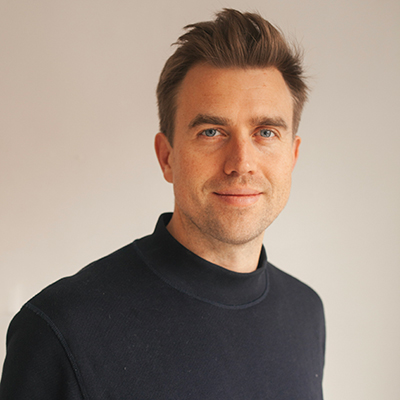
Derek Lomas
Derek is the principal researcher of the Positive AI project ─ systems for education and psychological well-being. He runs experiments to investigate theories of human value, including learning, motivation, aesthetics and well-being. Derek has a degree in Cognitive Science (Yale University, BA, ’03), Social Design (UC San Diego, MFA, 2009) and Human-Computer Interaction (Carnegie Mellon, PhD, 2014) with a certification in Interdisciplinary Education Research (Institute of Education Sciences, 2014). He received his postdoctoral training at the UC San Diego Design Lab with Dr. Donald Norman in 2015-2016. In his design practice, he helps large organizations use data for continuous improvement.
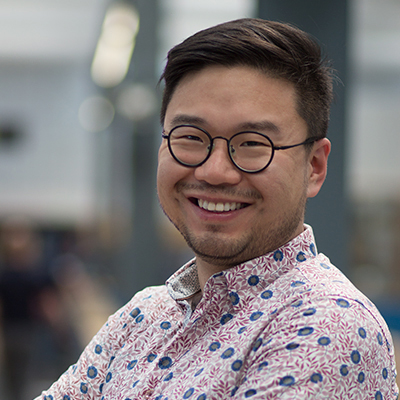
Haian Xue
Haian is an assistant professor at Faculty of Industrial Design Engineering, Delft University of Technology. Previously, he worked at DIOPD as a post-doc researcher for the ‘Design for Mood Regulation’ project funded by NWO. His research interests include design for experience, positive design for well-being, and alternative (artistic/humanistic) epistemology and methodology. Before joining TU Delft, he had worked as a design researcher and teacher at several design schools in Finland, the UK and the USA. He holds a Doctor of Arts (the Finnish equivalent of PhD in Design) from Aalto University School of Arts, Design and Architecture.
Post-doc researchers
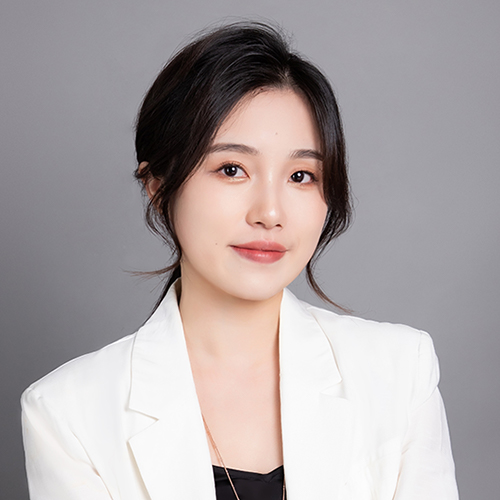
Siyuan Huang
Siyuan is a postdoctoral researcher at the Faculty of Industrial Design Engineering, Delft University of Technology. She has a background in Media and digital communication and Industrial Design (Hunan University and the Polytechnic University of Milan). In 2022, she obtained her PhD degree (cum laude) from the Polytechnic University of Milan on a thesis exploring the power of metaphor in design to build meaningful human-product interactions to foster attitude and behavioral change. Currently, she is involved in the Positive Design research team and works on the project of Fundamental Needs for Human-Centred Design.
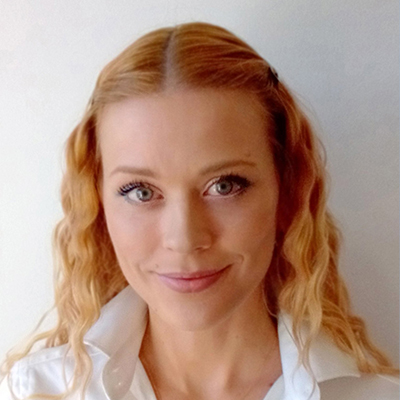
Tjaša Kermavnar
Tjaša is a postdoctoral researcher involved in the Design for Mood Regulation research project. She has a background in Medicine and Industrial Design (University of Ljubljana, Slovenia), and obtained her doctoral degree studying the ergonomics of exoskeletons (University of Limerick, Ireland). Her postdoctoral research in Ireland focused on 3D printing of medical devices, and in May 2021, she joined TU Delft to investigate the possibilities of improving people’s mood through design. Her research interests include all aspects of human-centred design, aimed at improving people’s comfort, safety, efficiency, and psychological well-being.
Doctoral candidates
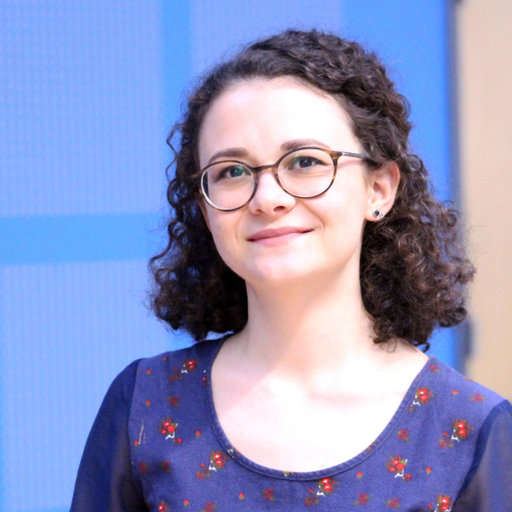
Alev Sonmez
Alev (Plamena) is a PhD candidate at Industrial Design Engineering faculty of TU Delft. As a part of ‘Design for Mood Regulation” project, her research focuses on mood phenomenon from a collective perspective. She is interested in how moods function and are manifested in group settings, how individuals’ moods affect the team ‘vibe’, and how mood-sensitive design can improve interactions and performance of work groups. Alev studied in Industrial Design (BSc) at METU and pursued her master’s degree in Design for Interaction at TU Delft. Besides positive design, she is interested in service design, behaviour change, speculative design, design for animals, and she enjoys philosophical discussions and dancing.
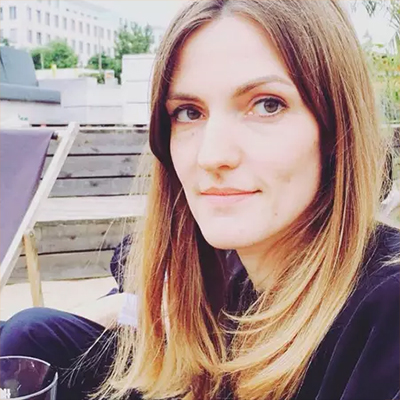
Lisa Wiese
Lisa is an external PhD candidate at TU Delft based in Berlin. Her background is in psychology, statistics and neuroscience. For the last ten years, she’s been conducting user research for eBay EU and helped shaping the user experience across different eBay subsidiaries (currently at brands4friends). Her PhD research at TU Delft focusses on the development of measurement instruments to assess products’ contribution to well-being.

Meike Hardt
Meike Hardt is a PhD candidate at the Faculty of Industrial Design Engineering (IDE) at the Delft University of Technology in The Netherlands. Her research is on designing community-led (design) practices for the democratization of AI systems in public spaces/sectors, while scrutinizing the possibilities and limitations of „critical” (design) practices for inclusivity and equity in socio-technical contexts.
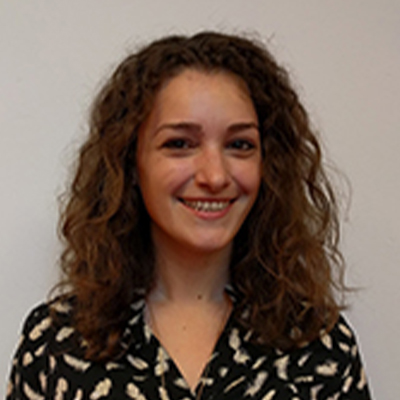
Michelle Johnson
Michelle is an external PhD candidate at TU Delft based in Salzburg. She has a background in Industrial Design Engineering and Strategic Product Design. Her research focuses on increasing well-being through acts of kindness, and the role that design has in supporting such behaviours. She aims to integrate principles from positive design and design for behaviour change in designing user experiences to promote and sustain acts of kindness that result in individual and the other’s well-being.
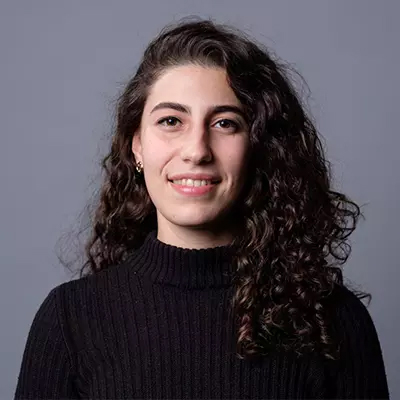
Pelin Esnaf
Pelin is one of the three PhD candidates working for the Design for Mood Regulation research project. She has a background in industrial product design and holds a masters’ degree from TU Delft, Design for Interaction programme. She worked on a research internship project about mood & sleep and identified the products involved in the fifteen strategies to regulate mood. Then, in her master thesis, she focused on the empathic abilities of design students. Currently, she is exploring the relation between mood & performance. Her aim is to make the education better and to hopefully give inspiration to students, educators and designers.

Steffen Ristau
Steffen Ristau is a PhD candidate at the Faculty of Industrial Design Engineering exploring Experience Design in Product Innovation Management. Steffen is coming with a strong background in innovation practise. After more than 10 years in various positions along the whole innovation chain, he felt the need to find an answer to the challenges he was confronted over and over, leading finally to his PhD research.
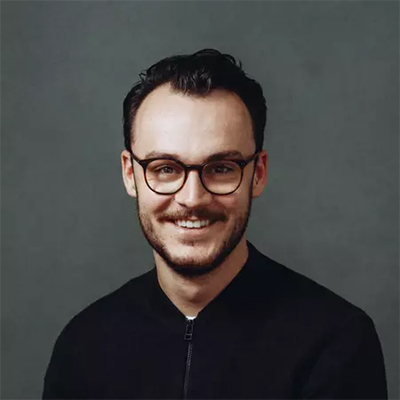
Willem van der Maden
Willem is a Ph.D. candidate at Industrial Design Engineering faculty of TU Delft. As part of the Positive AI project, his research focuses on aligning AI systems with humanistic values. Currently, a method to translate humanistic values to feasible information for AI systems is missing. Therefore, a key component of his work is understanding the nuances and challenges of assessing human values with computational metrics. Willem has a bachelor’s degree in Philosophy of Aesthetics, and Cognitive Neurobiological Psychology and a master’s degree in Applied Cognitive Psychology.

Zhuochao Peng
Zhuochao is a PhD candidate at the Faculty of Industrial Design Engineering. He has a background combining design and engineering: For his B.Eng. he studied Mechanical Design & Manufacturing at Hebei University of Technology (Tianjin, China), and for his M.Eng. he studied Product Design at Hunan University (Changsha, China). Now Zhuochao is involved in the Design for Mood Regulation project and his research will focus on the mechanism behind people’s mood-regulating activities towards positive mood states. Besides experience-driven design, his research interests also include user perception, service design, system design, and technical toolkits development.
Master students

Aayushi is a Design for Interaction student at the Delft University of Technology. Previously, she did her bachelors in Product Design from MAEER’S MIT Institute of Design in India. She is a curious individual who likes to ask ‘why’ and connect the dots. She is constantly fascinated by how the world works and what makes people tick. She draws immense satisfaction not merely from understanding the user and it’s needs but also creating simple yet innovative experiences for better functionality and usage. Currently, she’s delving into positive design and focusing on well-being in the domain of Design for Neurodiversity.
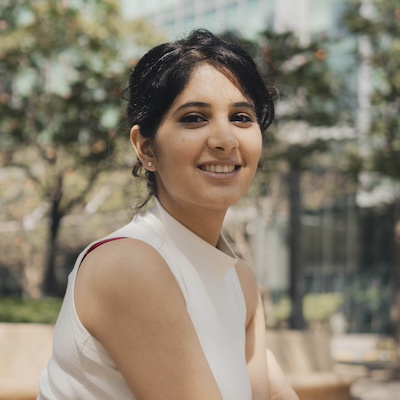
Ankita is a Design for Interaction student at the Delft University of Technology with a Bachelor’s degree in Architecture from India. She believes in the power of design education and is dedicated to enhancing personal development and well-being through the lens of design research. Her approach involves understanding people, their needs and questioning the assumptions to uncover the challenges. Drawing inspiration from the connections and dialogues that unfold among people, her goal is to incorporate positive design and behaviour change concepts into the creation of user experiences, making a meaningful impact on individuals and the environment.
Personal website: www.ankeemonkee.in
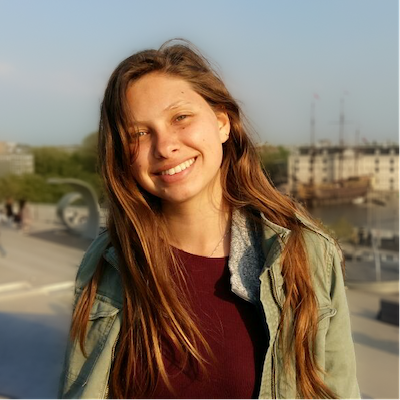
Chiara is a Design for Interaction student at the Delft University of Technology. Previously, she obtained her bachelor’s degree in Design and minor in Social Psychology at the Universidad de Los Andes in Colombia. She believes language (in all of its forms) is the first lens, barrier and opportunity to connecting with others. Her interests focus on the study of language and its influence on wellbeing and health across personal, professional and cultural levels. Understanding this, she aims to contribute to design proposals, education, tools and methodology through positive design.
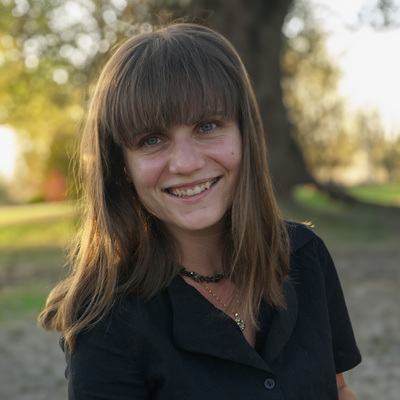
Gul is currently pursuing a master’s in Design for Interaction at TU Delft, holding a bachelor’s in industrial design from METU. Her belief that design can foster a positive change in society inspires her research interest in exploring the possible futures of products/systems with a more ethical and critical perspective. With this understanding, she aims to anticipate how humans can flourish in these futures. Outside of her studies, Gul serves as DfI’s student representative on the Board of Studies IDE with a keen interest in enhancing design education and students’ academic experience.
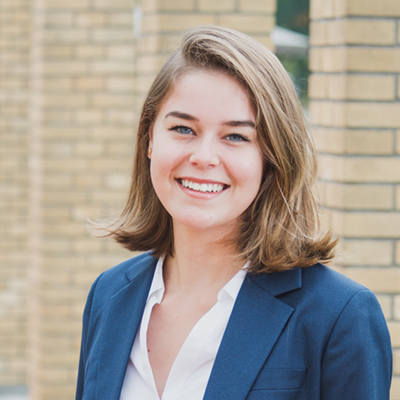
Marinka completed her bachelor’s degree in Industrial Design Engineering at Delft University of Technology and is currently a master student in the Design for Interaction programme there. She is inspired by people’s uniqueness and how their personality can influence the way they interact with products and their environment. She believes that design for wellbeing can find its place in the smallest of moments, while still making a positive impact on someone’s life. Currently, she is working on a project that translates the typology of fundamental needs into a design method.
Honorary members
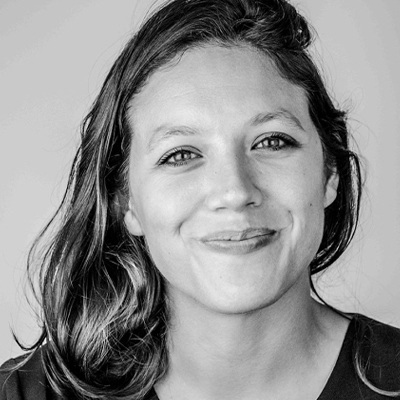
Beatrijs Voorneman works on the domain of positive emotions and well being from a design perspective. In her Master thesis ‘Improving the welfare of pigs’ she discovered a new field within this domain: design for animal welfare. In 2011 and 2012, Beatrijs was the project manager of the DIOPD.
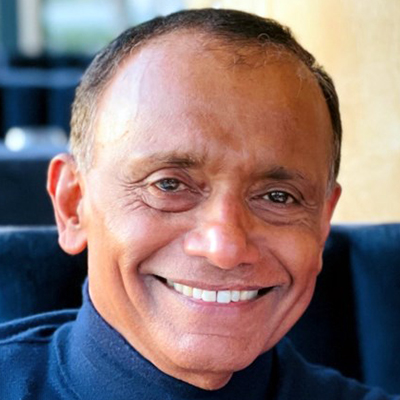
Eapen George, the former V.P. R&D for Innovation at PepsiCo, brought a wealth of experience and passion to our collaborative efforts. With a keen focus on creating brands and products that evoke positive emotions, Eapen was dedicated to the belief that the right narrative can shape powerful sensory signatures for core brands. Through his company, Round Feather, Eapen envisioned and worked towards establishing a global network of like-minded individuals, fostering projects worldwide that applied the principles of positive design. While Eapen is no longer with us, his impactful contributions and visionary spirit continue to inspire our collaborative initiatives.
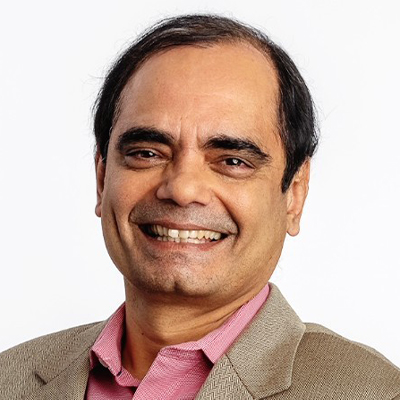
Jaya Kumar is former president of PepsiCo’s global nutrition group. He is currently senior vice-president for strategy in Asia of Mondelez International (an American multinational confectionery, food and beverage conglomerate), heading the Southeast Asia division.
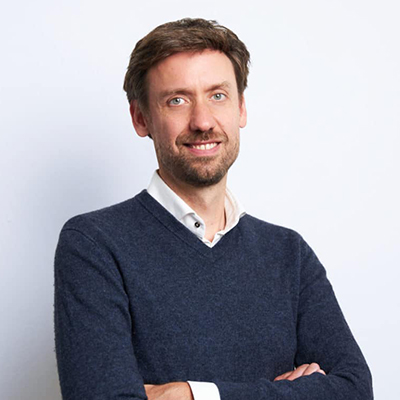
Dr. Steven Fokkinga, who completed his Ph.D. and served as a Post-doctoral researcher at the Faculty of Industrial Design Engineering at Delft University of Technology (NL), is a distinguished expert in the field. As co-founder, he played a crucial role in establishing the Delft Institute of Positive Design. His research spans across emotion and mood theory, conceptual design, and the integration of emotional richness into user experiences. As Managing Partner of Emotion Studio, a prominent research and innovation agency based in Rotterdam, Steven actively contributes to advancing the intersection of design, emotion, and well-being.



